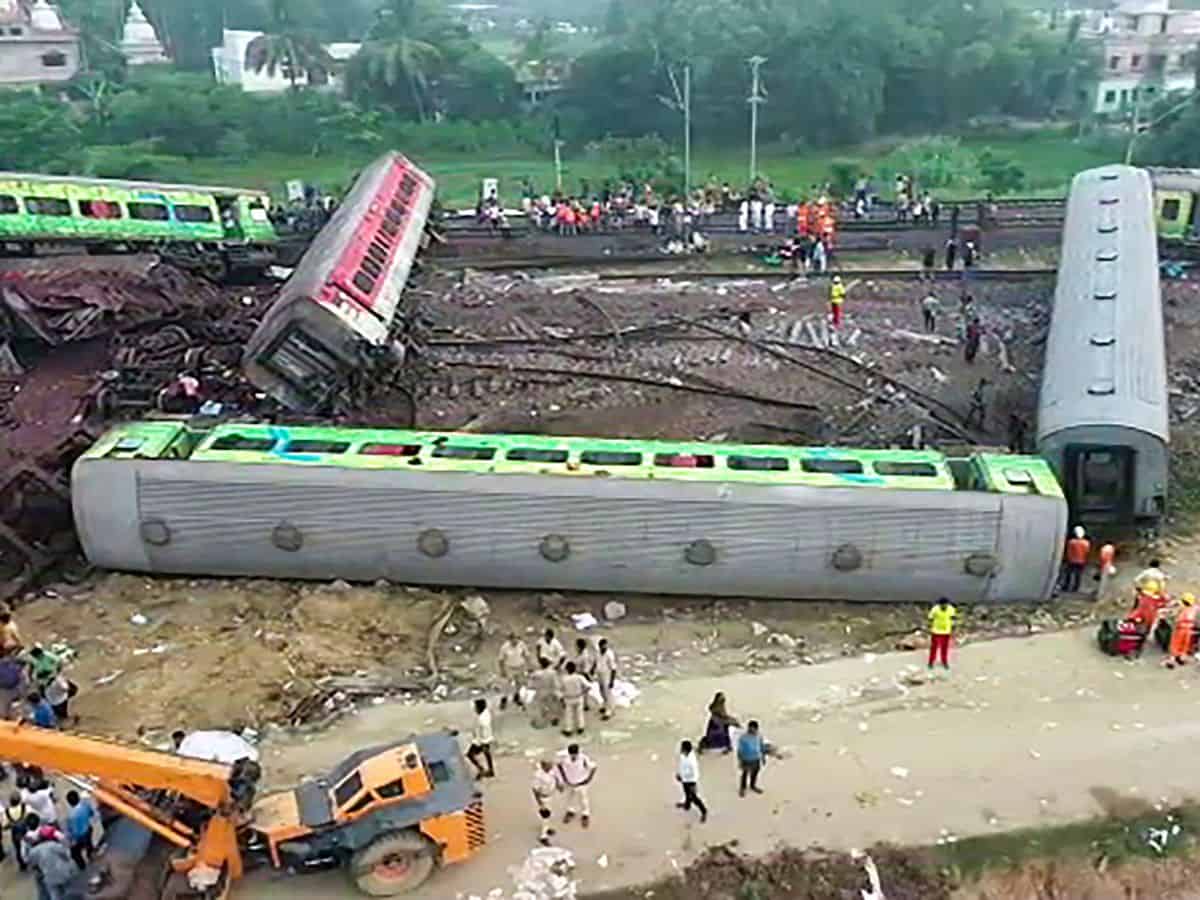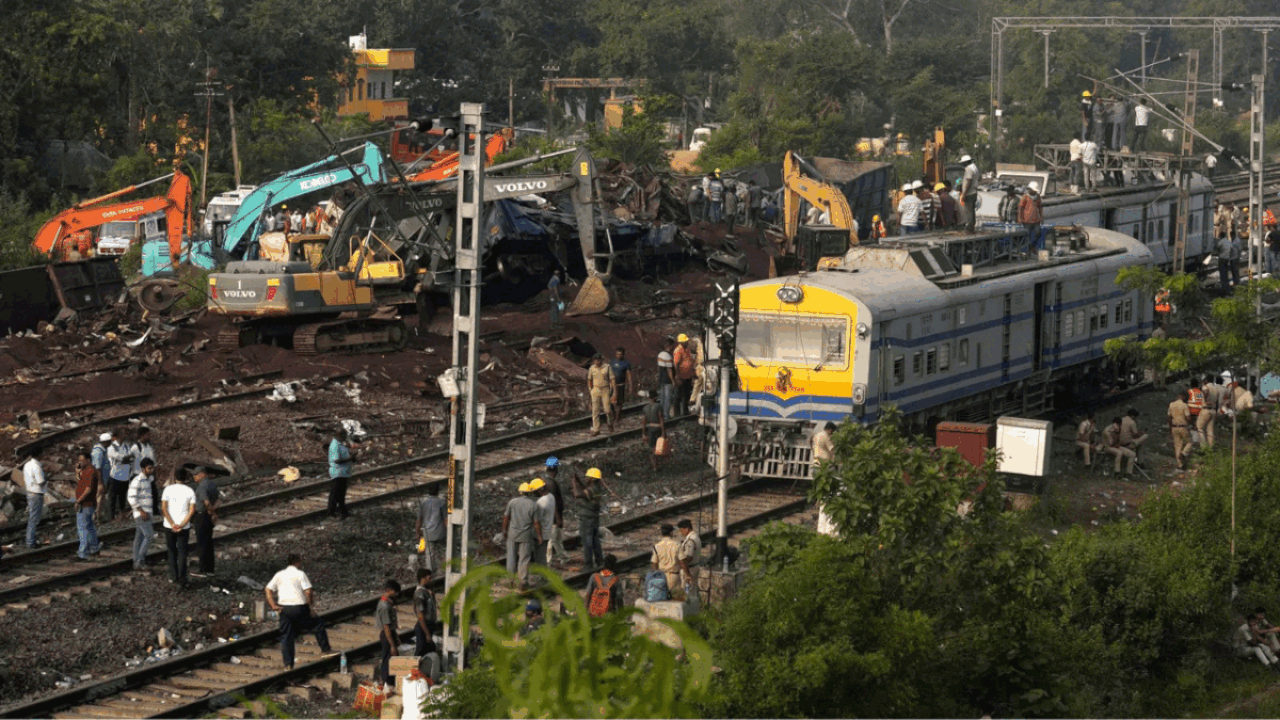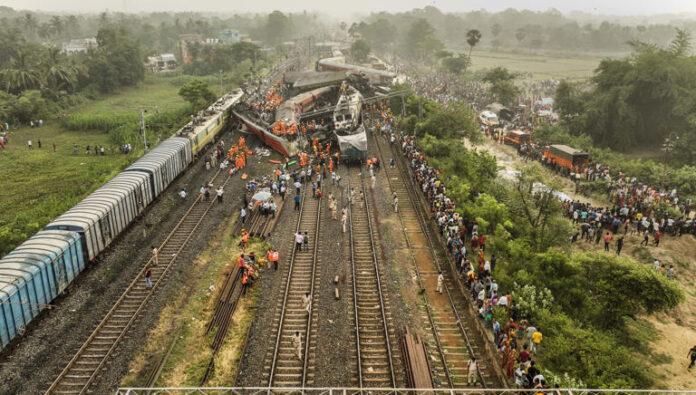In the wake of the devastating triple train collision in Odisha‘s Balasore district that claimed the lives of 238 passengers, the railways has confirmed that the crucial ‘Kavach’ system was not implemented on the route. The absence of this advanced technology, which could have potentially averted the collision, has raised significant questions and triggered a political blame game. As investigations into the incident begin, opposition leaders are pointing fingers at signalling failures, while Railway Minister Ashwini Vaishnaw emphasizes that the exact cause will only be determined after a thorough investigation. Among the possibilities being considered is the potential human error that led to the Coromandel Express taking the wrong track.
The Kavach system, had it been in place, could have played a pivotal role in preventing this catastrophic event. By alerting the loco pilot when a signal is jumped and subsequently taking control of the brakes to automatically bring the train to a halt upon detecting another train on the same line, Kavach ensures enhanced safety measures.
Railways spokesperson Amitabh Sharma confirmed that Kavach was not available on the route where the collision occurred, shedding light on a significant gap in the implementation of this potentially life-saving technology. Kavach was initially introduced as part of the Atmanirbhar Bharat initiative in the 2022 Budget, with plans to bring 2,000 km of railway network under its coverage.
Safety Gaps Exposed: Absence of Kavach Technology Raises Alarm and Prompts TMC’s Worries on Coromandel Route
As videos circulate featuring Rail Minister Ashwini Vaishnav explaining the Kavach system, Saket Gokhale from Trinamool Congress raises important questions regarding its limited coverage. Gokhale questions why only 2% of the total railway routes were equipped with Kavach, suggesting that the technology was essentially a rebranded version of the Train Collision Avoidance System (TCAS) proposed by Mamata Banerjee during her tenure as railway minister.
Highlighting the timeline, Gokhale tweeted, “In 2011-12, Indian Railways, under then Railways Minister @MamataOfficial, developed the ‘Train Collision Avoidance System (TCAS)’ system. The Modi Government, after coming to power, renamed it to #Kavach purely to claim credit. There was ZERO PROGRESS on deploying this crucial rail safety technology until 2019 when three companies were approved for manufacturing and installing KAVACH on railways.”
The absence of Kavach on the Coromandel route has shed light on the potential implications of inadequate implementation and raised concerns about the prioritisation of passenger safety. As the investigation progresses, the focus will remain on determining the root causes and addressing the systemic failures that contributed to this tragic event.
In a devastating turn of events, a triple train collision in Odisha’s Balasore district has claimed the lives of at least 238 passengers and left over 900 injured. As the shockwaves of this horrific incident reverberate, the railways have confirmed a significant oversight—the absence of the crucial ‘Kavach’ system on the route, which could have potentially prevented the collision. The revelation has sparked outrage and led to a political blame game, with opposition leaders criticising signalling failures, while Railway Minister Ashwini Vaishnaw asserts that the exact cause will only be determined through a comprehensive investigation. Additionally, there is speculation that the Coromandel Express may have taken the wrong track due to a possible case of human error.
The Kavach system, if implemented, could have played a pivotal role in averting this catastrophe. Designed to alert the loco pilot when a signal is ignored and subsequently take control of the brakes to automatically halt the train upon detecting another train on the same line, Kavach is a cutting-edge safety measure.
Railways spokesperson Amitabh Sharma has confirmed the absence of the Kavach system on the route where the collision occurred, highlighting a significant gap in the implementation of this potentially life-saving technology. Originally announced as part of the Atmanirbhar Bharat initiative in the 2022 Budget, Kavach was intended to cover 2,000 km of railway network.
Safety System Shortcomings: Absence of Kavach Technology Raises Alarms for TMC in the Wake of Coromandel Tragedy
As videos circulate featuring Rail Minister Ashwini Vaishnaw explaining the Kavach system, Saket Gokhale from the Trinamool Congress raises important questions regarding its limited coverage. Gokhale questions why only 2% of the total railway routes were equipped with Kavach, suggesting that the technology was merely a rebranding of the Train Collision Avoidance System (TCAS) proposed by Mamata Banerjee during her tenure as railway minister.
Drawing attention to the timeline, Gokhale tweeted, “In 2011-12, Indian Railways, under then Railways Minister @MamataOfficial, developed the ‘Train Collision Avoidance System (TCAS).’ The Modi Government, after coming to power, renamed it to #Kavach purely for credit-taking purposes. There was ZERO PROGRESS on deploying this crucial rail safety technology until 2019, when three companies were approved for manufacturing and installing KAVACH on railways.”
The absence of Kavach on the Coromandel route underscores the potential consequences of inadequate implementation and raises concerns about the prioritisation of passenger safety. As the investigation proceeds, the focus will remain on uncovering the root causes and addressing the systemic failures that contributed to this tragic event. It is imperative that swift action be taken to rectify the shortcomings and ensure the effective implementation of advanced safety technologies to safeguard the lives of railway passengers.

